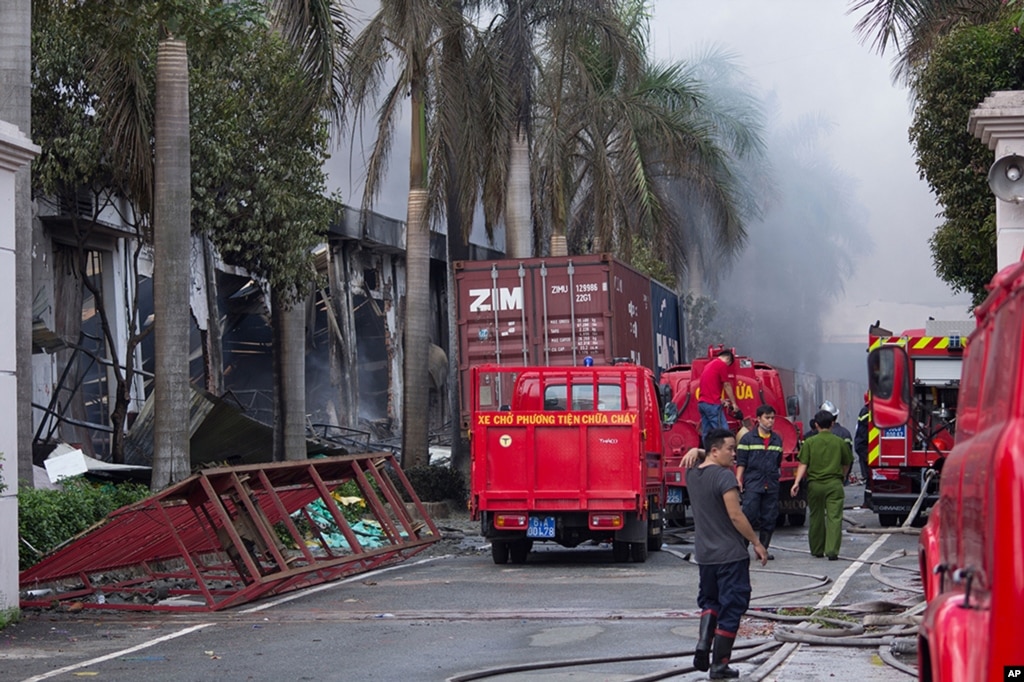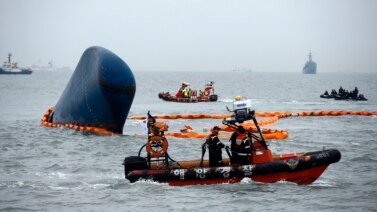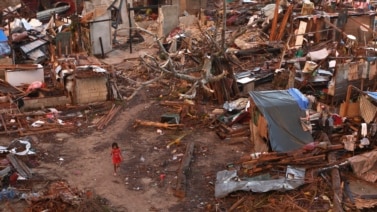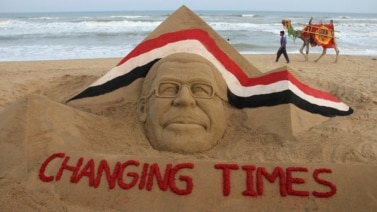
From VOA Learning English, this is In the News.
Relations between China and Vietnam were tense this week because of Chinese activity in waters claimed by both sides. Chinese and Vietnamese ships have engaged each other since China deployed an oil rig in the South China Sea last month. In Vietnam, the area is known as the East Sea.
The device was set up in an area that Vietnam says is within its Exclusive Economic Zone. The deployment led to protests across the country. On Thursday, Vietnamese officials reported that one Chinese worker was killed after a protest at a steel factory turned violent. More than 100 other people were injured. The unrest came after thousands left their jobs and destroyed factories reportedly owned by Chinese.
In southern Vietnam, up to 20,000 protestors burned buildings and attacked factories at Binh Duong, a major manufacturing center. A sign at the entrance to one factory said, “We are South Korean, no Chinese officials work at our company.” Another sign showed a Japanese flag and the words, “We always support Vietnam.”
Government officials blamed what they called “bad elements.” They said most people condemned the violence. Officials in Cambodia said hundreds of Chinese nationals had crossed the border from Vietnam.
In Beijing, the Chinese government expressed serious concern about the situation. A foreign ministry official urged Vietnam to punish those responsible for the violence. She appealed to the Vietnamese government to guarantee the security of Chinese companies and employees.
Vietnamese Prime Minister Nguyen Tan Dung said anti-China protests to express patriotism, or nationalism, are “legitimate.” But he said those that violate laws and destroy foreign businesses would be “strictly dealt with.”
Some observers questioned whether his statement came too late. Jonathan London is a professor with City University of Hong Kong.
“So you have coverage of the dispute on the high seas, and coverage of the violence, but you don’t have any reportage of what this means. What are Vietnamese authorities saying about this? What are we to make of these events? So you know what the result is – a very disjointed flow of information that does not contribute to a stable political environment.”
China is Vietnam’s biggest trading partner. Many observers fear that rising tensions could damage the Vietnamese economy.

China and Vietnam are not the only nations with claims to parts of the South China Sea. Brunei, Malaysia and the Philippines each claim all or part of the sea. Two island chains, the Paracels and the Spratlys, are said to contain oil and natural gas.
The Philippines’ Department of National Defense accused China of developing land in Spratlys. Edwin Lacierda is a spokesman for the president.
“I would like to believe that China would like to be a member of the international community in good standing. However, it appears they are doing things, which we find objectionable.”
On Friday, more than 100 Filipinos and Vietnamese held a joint protest near the Chinese consulate in Manila. They demanded that China stop activities in areas claimed by their countries.
And that’s In The News, from VOA Learning English. I’m Pat Bodner.
*For the latest information on this story, go to www.voanews.com
Editor's note: The following sentence has been re-edited to accurately reflect the engagement between Vietnam and China.
Chinese and Vietnamese ships have engaged each other since China deployed an oil rig in the South China Sea last month.



